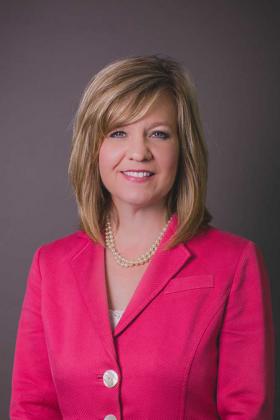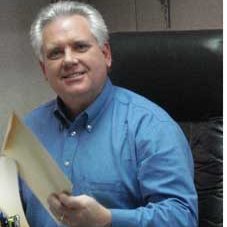One of the Permian’s Best Kept Secrets
by Julie Anderson
The West Texas District Export Council is one of the nationwide networks of District Export Councils which make significant contributions to America’s international competitiveness. The West Texas Council contributes leadership and international trade expertise to complement the U.S. Commercial Service’s export promotion efforts through counseling businesses on the exporting process and conducting trade education and community outreach.
Members of District Export Councils volunteer their service for one primary reason: to share best practices and lessons learned with other local companies in order to increase exports from this region and thereby improve the local economy, declared Larry S. Richards, Council member and president of Osprey Consulting LLC. The Councils were set up by the U.S. Department of Commerce some 30 years ago to allow leaders in the export business a chance to network and communicate with government regulators.
“In my opinion, the West Texas District Export Council [or DEC for short] is one of the best kept secrets in the Permian,” Richards offered. The non-profit organization is comprised strictly of volunteers whose formal members are approved by the U.S. Secretary of Commerce. The group consists primarily of local manufacturers and engineering and service firms that have been successful in profitably competing in multiple international markets. Industries represented include oil-and-gas-related companies, but agricultural, medical, and service-related businesses are likewise in the mix.
“West Texas DEC members have a tremendous amount of experience and expertise in many specific international markets and share that expertise at no charge,” Richards said. “Selling your products and services overseas can be extremely profitable, but mistakes can be extremely costly, as well.”
The DEC allows local companies to learn from the scars of others, and offers contacts and recommendations in growth markets overseas,” Richards continued. The assistance is often putting a local business in contact with a DEC member that has 10 or 20 years of exporting experience into the particular market they are pursuing, [as well as] sharing contacts or making country-specific recommendations to successfully navigate the cultural and business terrain.
Permian Basin Impact
The downturn facing oil and gas production in the Midland-Odessa area has been tough on local businesses, noted West Texas DEC Treasurer Genevieve Mathieu of Airgroup DFW.
“Many of those businesses concentrated on the task at hand, extracting oil and gas out of the Permian Basin,” Mathieu elaborated. “A few others also exported either their product or technology overseas, and most of those are still going strong. Orders from overseas continued to be fulfilled for months after the downturn affected the local market. It is a known fact that having clients overseas who continue to order while the domestic market is depressed can be the bridge to the better times when the local market recovers.”
Simply put, the West Texas DEC is trying to help local businesses by showing them how they can benefit from exporting, Mathieu remarked. The DEC conducts seminars throughout West Texas and the Panhandle, usually at a local university. DEC leaders are in the process of planning the next export seminar, tentatively set for February or March of 2017 in the Midland/Odessa area, likely on the campus of the University of Texas-Permian Basin. Exact details will be available on the DEC website at http://www.exporttexas.com/westtexas.
“We want to spread the word so more businesses will take advantage of the seminar and workshops and be ready to expand their business opportunities by attracting overseas clients and begin exporting,” Mathieu detailed.
Along with group seminars, the West Texas DEC conducts one-on-one site visits offering training, including market research, business planning, international law, contracts, payments, working capital options, and project financing options.
The West Texas DEC is an active organization of international trade professionals who meet for strategic sessions to address international issues and awareness, Mathieu said. The group offers diversity, she observed, and includes exporters of manufactured products and services, providers of export support services (accounting, finance, legal, transportation, etc.), academicians, and leaders of non-profit organizations including state and local government.
“A significant number of our members are from the private sector, and their knowledge of international business provides a source of professional advice to future and current exporters and the entire international trade community in Texas, one of the nation’s leading exporting states,” Mathieu added.
Richards is one such member.
“I’ve personally been involved with successful projects [and some not so successful] in over 40 countries over the past 25 years, and I have served on the West Texas DEC since its inception in 2004,” Richards said. “I’ve seen firsthand how diversification into international markets can be instrumental in providing value to any business, especially those in the volatile boom/bust cycles we encounter in oil- and gas-related equipment.”
The products and services provided here in the Permian are in great demand in many international markets, Richards confirmed. The Permian is one of the most mature oil basins in the world, and what works here often works in similar-aged oil basins across the globe—and there are many of them, he observed.
Throughout the last 25 years, Richards has sold drilling equipment, well servicing equipment, vapor recovery equipment, production equipment, and a host of service-related and aftermarket products in the international arena. Most national oil companies overseas and most multinational oil and gas firms tend to have much longer planning cycles on their capex projects than their domestic counterparts, Richards recalled, and while these projects may take longer to close the initial deal, they tend to proceed in both the boom and bust cycles.
“As an example, when running HY-BON Engineering during the downturn in 2009, we survived an incredibly tough downturn without a single layoff in our shops primarily due to a huge project we had pursued in Venezuela for several years that was awarded when oil was literally at its lowest, coupled with a well-timed large parts order from North Africa from equipment we had sold a few years before,” Richards observed. If either project had been in the United States, they would have postponed the spending until 2010, and Richards would not have been able to retain his dedicated personnel.
 “Once you sell products overseas, these overseas clients have a greater tendency to use the original manufacturer for all of their future parts and aftermarket service, which can be critical high margin revenue stream in a downturn,” Richards communicated. “It’s not unusual to enjoy 100 percent of the aftermarket sales from your product in an overseas sale, if you prove to be a good steward of that business and pursue it from day one.”
“Once you sell products overseas, these overseas clients have a greater tendency to use the original manufacturer for all of their future parts and aftermarket service, which can be critical high margin revenue stream in a downturn,” Richards communicated. “It’s not unusual to enjoy 100 percent of the aftermarket sales from your product in an overseas sale, if you prove to be a good steward of that business and pursue it from day one.”
Earlier in his career, Richards managed the aftermarket parts business for Continental Emsco, which sold triplex mud pumps overseas.
“That type of diversification can help save your business in a downturn and makes it much more profitable in the next upward cycle,” he stated.
On the flipside, those interested in exporting can spend a great deal of money chasing international projects with sub-par results.
“The goal of the West Texas DEC is to help local companies avoid that learning curve, and help ensure they are making informed decisions in their efforts,” Richards said. “We point local companies to many different resources at their disposal.” These include regional, state, and Department of Commerce groups.
Any regional company or individual interested in exporting can attend scheduled DEC meetings or events, Richards said, and the DEC invites those who are already exporting to consider joining the council as a member and share their expertise.
“The entire reason we volunteer our time to the DEC is so we can help local companies overcome their obstacles and begin or improve their exporting experience,” Richards summarized.
Communitywide Value
“I work for an economic development corporation that assists employers with all aspects of their business, including exporting, if help is needed in that area,” explained Christine Allen, director of Workforce Development and Foreign Trade Zone 260, Lubbock Economic Development Alliance. “However, economic development professionals do not always have expertise in exporting. That is why it is so good to have a partnership with the West Texas District Export Council. Members are an excellent resource for exporting questions and are always willing to share their experiences with those just getting started or who are experiencing challenges with exporting.”
Exporting brings in new dollars to a community, versus the recycling of dollars that typically occurs in day-to-day transactions within a community, Allen noted. A community that has a strong exporting presence within its business sectors will further strengthen a community’s economic base. Exporting during a downturn is invaluable, as people within a community pull back on their spending, and the recycling of local dollars is not as strong.
For those businesses that have never exported before, the task of exporting can seem daunting, Allen indicated. It’s difficult to know where to start with the paperwork, letters of credit, understanding currency exchange rates, and understanding customs procedures both in the United States and foreign countries.
“I believe that lack of understanding concerning any one of these issues, much less all of them together, steers some businesses away from exporting,” Allen observed.
A benefit from joining the West Texas DEC is learning how to be prepared. For example, Allen recommends being cognizant of the foreign exchange risk.
“Companies that deal internationally have that risk because of the fluctuations in the price of each country’s currency,” she explained. “The West Texas DEC can connect companies with banks that can lock in a certain exchange rate to help a business protect its profit margin and manage the foreign exchange risk.”
Exporting is what brings new money and capital into West Texas, Merritt summarized.
“The new money is what continues improving our infrastructure and quality of life,” he said. “I believe more people benefit, and people benefit more, from exporting than any other business activity. The more we can promote exporting contribute to expanding exports, the better off we all are.”
For more information or to join the West Texas District Export Council, contact Chair Mark Merritt, at markm@westechseal.net.
Julie Anderson, based in Odessa, is editor of County Progress Magazine, and is well known to many readers of PBOG as the former editor of this magazine.














